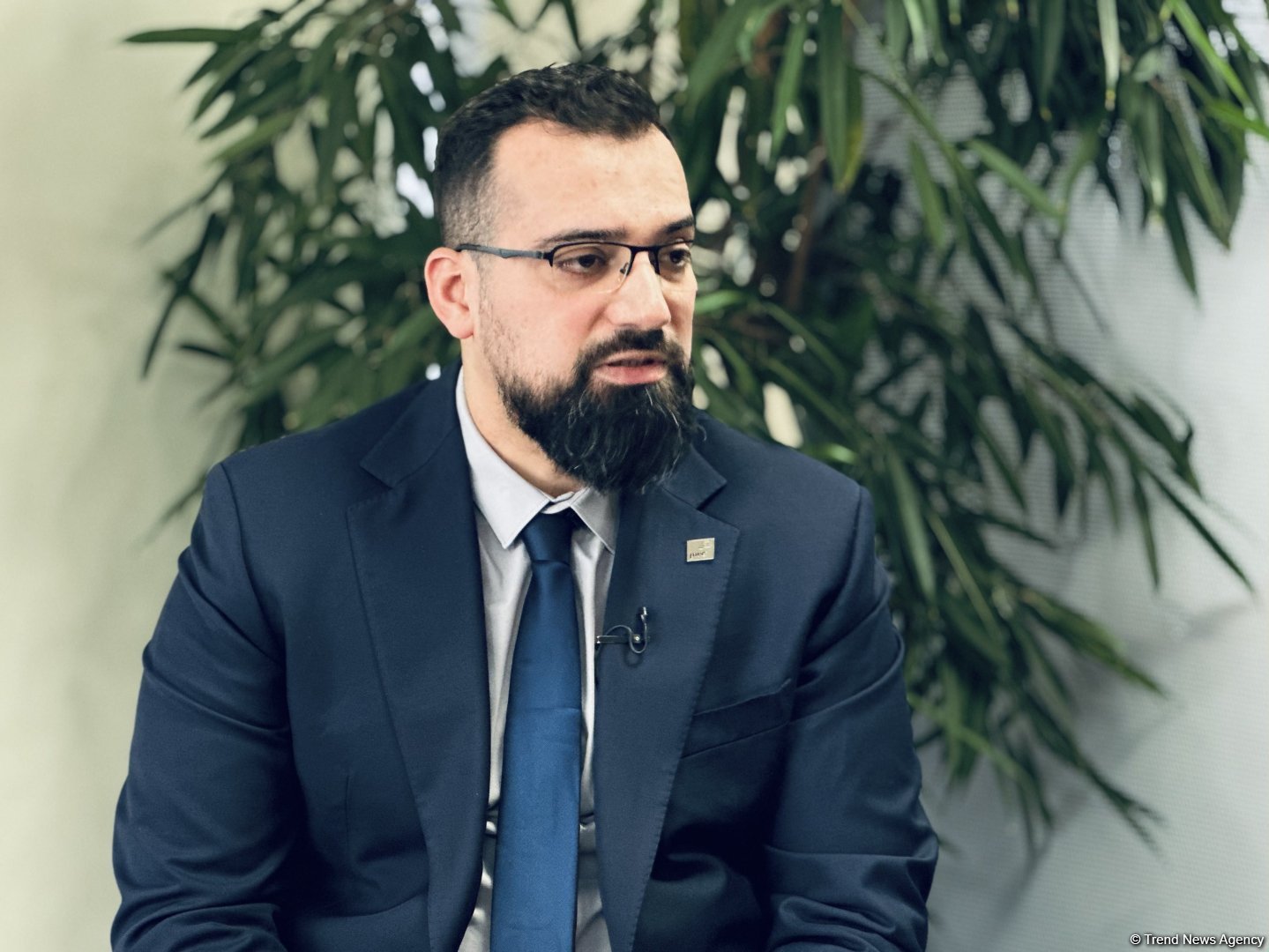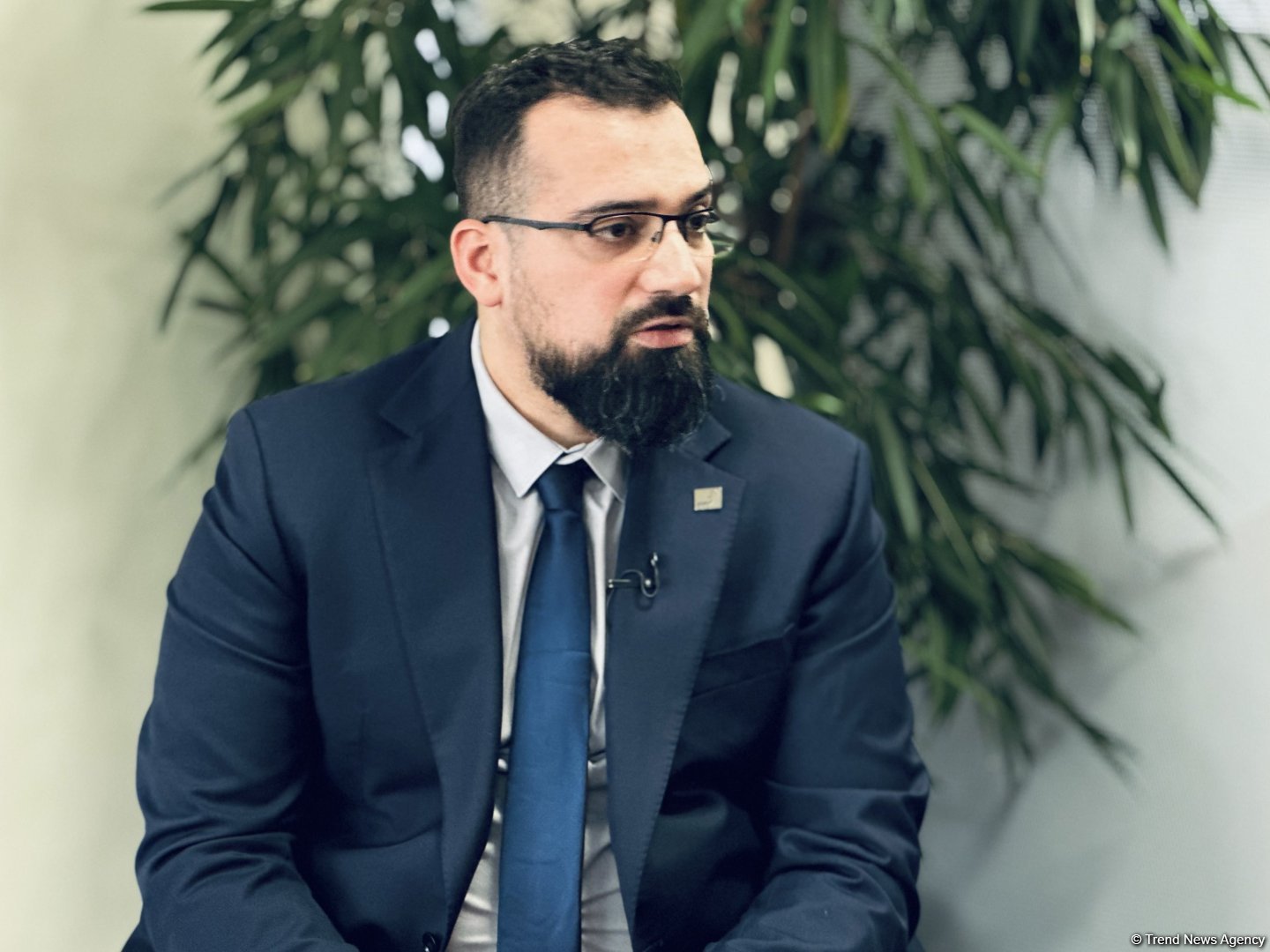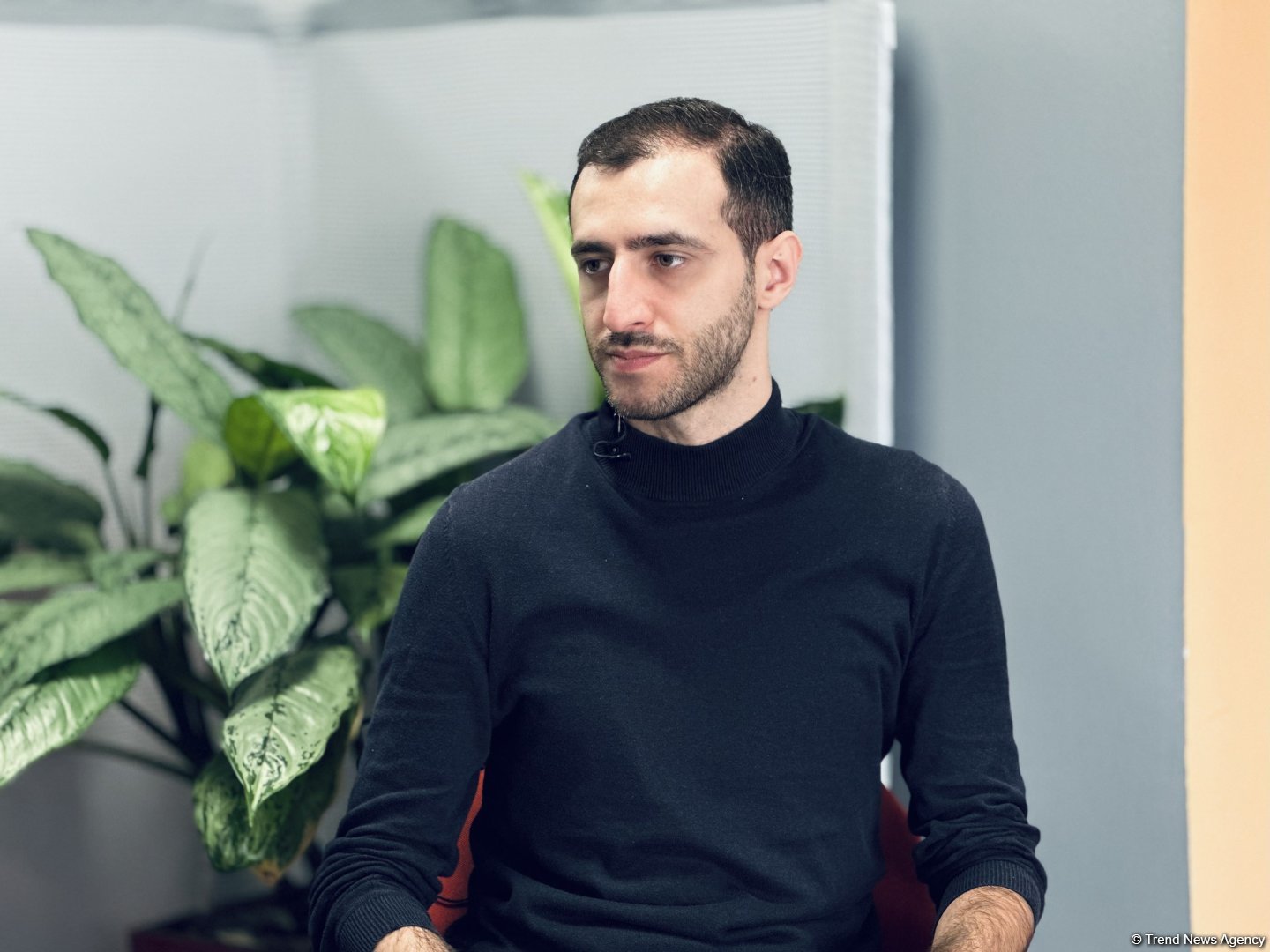BAKU, Azerbaijan, December 14. Azerbaijan has a very favorable geographical position and, therefore, the country has high need for various types of transportation, the head of PwC Technology in Azerbaijan Farid Gattal told Trend.
"Compared to other countries in the region, we use transportation opportunities quite efficiently. We have well-developed air transportation for passenger and cargo transportation. There are more than 10 airports in our country, including 8 international airports. Railroad communication is also well-developed, and Baku has a functioning subway. Sea transport isn't quite developed in terms of passenger transportation, but it is actively used for cargo transportation," Gattal said.
According to him, the high demand for transportation through the Caspian Sea is evidenced, in particular, by the construction of a new seaport in Azerbaijani Alat.
"It should also be noted that, as in many countries with high rates of urbanization, the need for the development of public transport is of particular importance. The issue of ensuring transport connectivity and the ability to move quickly within the city is quite acute. The answer to this was the rapid development of cab services, the emergence of electric scooters, and the launch of modern buses of various capacities connecting different parts of the city. New intercity routes are also being developed, which will use comfortable buses meeting international standards," Gattal added.
He emphasized that international transport corridors play an important role in terms of the export potential of the country, bringing revenue to the budget from the export of transport services.
"Information and digital technologies are now widely used in the transportation sector, including companies involved in the construction of roads, railways, airports, and ports, as well as, of course, carrier companies. I would like to focus on a few issues of interest in public and urban transportation," Gattal said.
"It is no secret that scooters have appeared in our city. Baku quickly skipped the era of bicycles, while in many countries with the emergence of scooters, the question of what to do with bicycles became urgent. Baku has transcended this phase by introducing access to scooter rentals through an app," said the head of PwC.
"This is a great example of how new technologies are not only becoming part of a business but are themselves bringing to life a new technology-oriented business, which becomes possible and whose services become available to the masses through hardwareand software to connect a vehicle, such as a scooter, with a mobile application for renting, controlling movement and payment," he added.
According to Gattal, the same is happening in the cab industry.
"For example, while scooter rental is a new business that has emerged from scratch due to technological advancements, in terms of cabs, we are seeing a transformation driven by disruptive technologies. These new technologies are transforming the dispatch cab into a mobile app-based cab service. We have services such as Uber, Uklon, Bolt, Yango, and others operating in our city that are powered by modern technology. For the end consumer, these changes have a positive effect, affecting the reduction of the cost of travel, increasing the speed of cab service, and improving the quality of services in general," he emphasized.
Gattal also touched upon transportation corridors and trunk highways.
"Firstly, technology alone cannot serve as a basis for new business, being only a part of it. Therefore, a combination of infrastructure projects and smart IT and digital solutions is needed. In particular, this is true for railroads. Railroads have existed for many years and represent an important element of the country's transportation system. For example, Baku-Tbilisi-Kars, a railway that is already operational, is part of the Middle Corridor. Trains can move even without new technologies, but the introduction of digital solutions allows for optimizing costs affecting tariffs in the transport sector. Lower fares become a competitive advantage for various transportation corridors," Gattal continued.
As for railway infrastructure, he said that technologies such as Enterprise resource planning systems (ERP) and repair and procurement management systems are saving on inventory, reducing procurement prices and labor costs.
"An example of the successful implementation of such technologies is Italian Railways, which has been able to save a significant amount of money thanks to its preventive repairs model. This model involves using hardware and software to read data from key components of locomotives, rail sections, and stations to predict breakdowns and prevent major repairs, which in turn avoids traffic delays. These examples provide evidence that technology not only saves money but also makes services cheaper and more attractive," he said.
"Such principles are also applicable in aviation, where airports serving transport vessels can adopt cost optimization technologies. Seaports and highway operators can also utilize information and digital technologies to improve their operational efficiency," Gattal said.
The head of PwC Technology also emphasized that there are highways where control systems, billing, toll payment and license plate scanning technologies have already been implemented.
"An example of this is the first toll road from Baku to Guba city, where technology plays an important role in license plate scanning, automatic billing, and payment. In addition, new technologies also have an impact on urban transportation," he said.
According to him, the Mobility as a Service concept seeks to integrate different vehicles and companies into a single offering.
"This becomes especially important for e-commerce, where transportation is an integral part of business processes. One of the main challenges is to automate the last mile delivery process, and the Umico project in Azerbaijan successfully shows how technology can make delivery faster and more predictable," Gattal said.
He emphasized that digitalization affects first of all tariffs, as the main goal is to achieve the final total cost of transportation along the transport corridor to make it competitive.
"Transportation corridors are mainly formed on the basis of infrastructural opportunities and proposals. In Azerbaijan, a huge amount of work is being done in this direction. Transportation is a priority area of development in general, with good potential to increase export opportunities and first of all exports of services. Digitalization affects tariffs firstly, as the main objective is to achieve the final total cost of transportation along the corridor to make it competitive. It is clear that when talking about the East-West route, we are mainly talking about the transportation of products from China to Europe, and here it is crucial to have competitive prices. Digital technologies help optimize resources to achieve this," he said.
Gattal emphasized that it is also important that the digital ERP system, i.e. the business management system, is open to interact with other ecosystem members (the current trend is API).
"You can then take orders and transmit quotations electronically or, for example, integrate the seaport and railroads so that a system is formed where a certain package of services can be formed. There is a great potential here, and the more effectively digital technologies are implemented directly in large transportation companies, infrastructure operators, the stronger, in my opinion, the greater the competitive advantage and the opportunity to develop new potential routes," he added.
He noted that investments in IT are currently quite expensive.
"The demand is huge, all sectors need IT, and resources in this sphere are notoriously limited. And Azerbaijan is no exception. Despite the high demand in Azerbaijan for IT specialists, many leave to work abroad, as there are few barriers and local companies need to take measures to retain and attract specialists. The cost of IT resources and specialists in our country is approaching world standards, which makes it more difficult to develop our own technologies. Therefore, any enterprise or organization faces the question of feasibility, economic benefits and cost analysis. That is, how much we will pay and what we will get as a result," he said.
Turning to recommendations for participants in the transportation sector to improve operational and financial efficiency, Gattal said the first recommendation is to take a hard look at the current situation, determine the stability of systems, their operability and cost of maintenance.
"This includes diagnosing and assessing existing technologies and predicting what will happen if nothing is done. This stage can identify the risks of technology obsolescence or the potential for it to become significantly more expensive to maintain due to lack of resources. The second stage is about the involvement of international players, drawing on the experience of more developed countries in the field of transportation. This could be studying the experience of Türkiye and European countries that have achieved some success in this area. The development of our own technologies from scratch is certainly useful for the overall development of the IT market, but nowadays the concept of 'time to market' is becoming more and more important, as it is important to quickly introduce new products to the market, and here the most effective use of foreign experience, as I see it, can be useful," Gattal said.
According to him, if we talk about an application in which one can buy a ticket for all modes of transportation at once, it is a thought - whether it is worth developing it from scratch or it is better to buy a ready-made solution.
"The decision should be based on an analysis, not just a choice between development and purchase. This analysis should be economic and take into account all risks. I repeat that diagnostics is the first step. It is necessary to assess how well our IT system meets current needs, make a comparison with what is happening in the region and other countries, and make development decisions based on international experience and business needs. I will give advice from personal experience. Unfortunately, very often development decisions have a horizon of one year, which, in my opinion, is too short a planning period. After this period, development continues, and here it is recommended to build IT system development roadmaps for a period of 3 to 5 years. At the beginning of this period, specific steps can be defined, and in the future you can focus on general development directions. This approach allows to understand the big picture and forecast the future, as well as determine at what speed new products should be introduced," he added.
Gattal said that, for example, when considering the development of a system for purchasing transportation tickets, it is important to conduct diagnostics, create a roadmap for 3-5 years and use the experience of international peers such as carsharing systems.
"The question is whether to develop your own system from scratch or acquire an existing solution, as they did with Uber, which is quickly realizable but requires a clear goal-setting. Market research, benchmarking and investment costing help to choose the right development option. This is important for all components of the transport sector, especially those such as roads and aviation, where cost optimization has development potential. However, in addition to economic aspects, safety and environmental impacts must be taken into account. Promising technologies such as machine vision and artificial intelligence can affect the level of safety in the transportation system, which should be considered as an important factor at the state level," he concluded.
PwC is an international network of firms offering consulting and auditing services. "PricewaterhouseCoopers" means the companies of the PricewaterhouseCoopers International Limited network of firms, each of which is a separate legal entity. The PwC brand has existed for over 160 years and is part of the so-called 'big four' audit firms along with Deloitte, EY and KPMG.
PwC's strategy in Azerbaijan is primarily aimed at helping local businesses, both private and public. PwC aims to assist Azerbaijan in developing enterprises and businesses, strengthening their competitiveness, changing the structure, and improving the form of doing business following existing challenges.
Stay up to date with more news on Trend News Agency's WhatsApp channel












